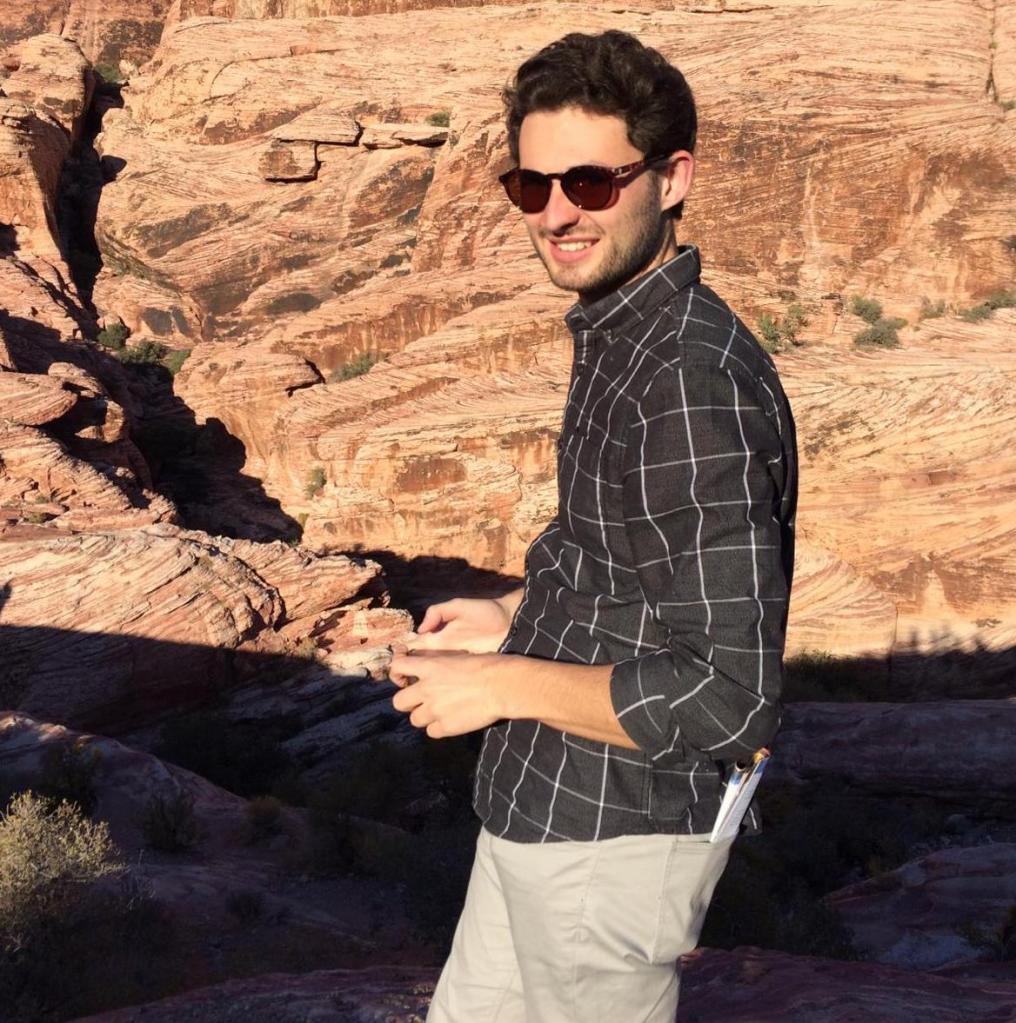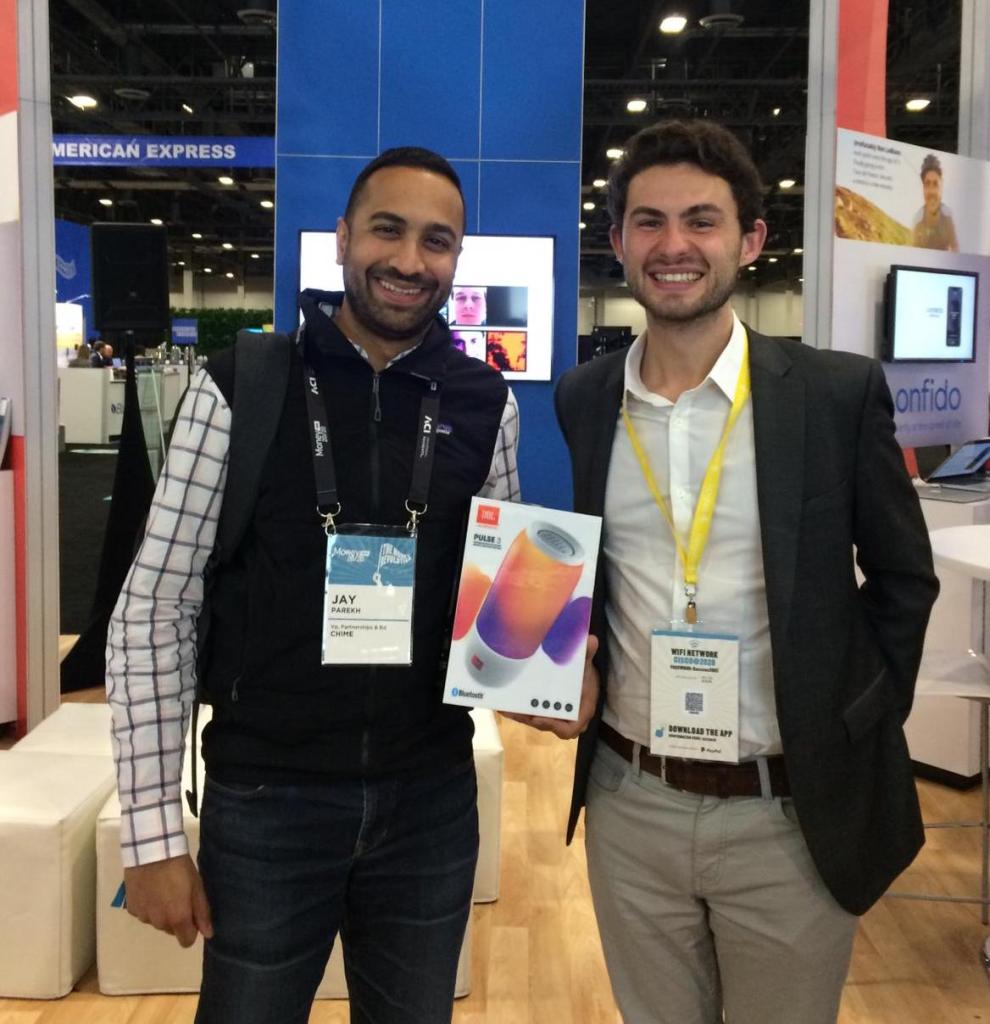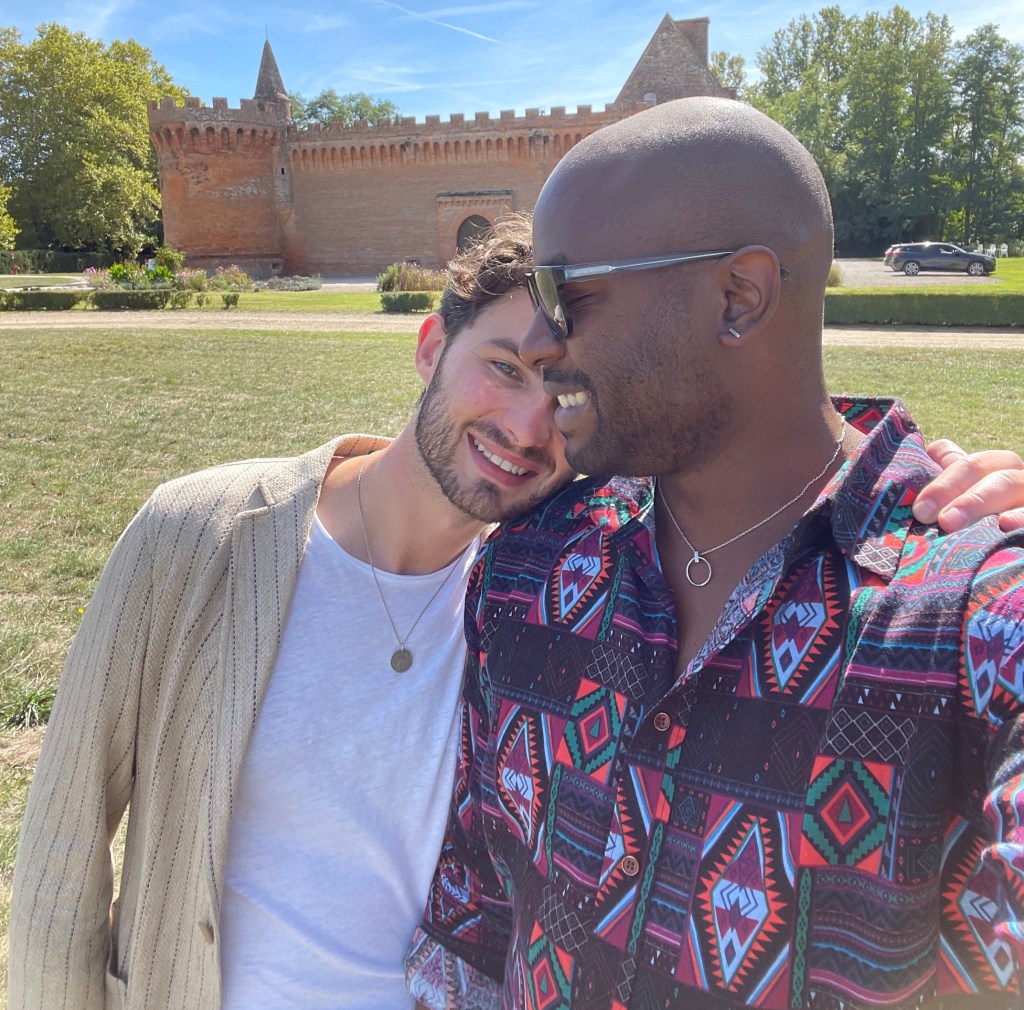‘Lessons I’ve learned as a queer entrepreneur’

Patrick Penzo reflects on learnings after a company he helped build was recently acquired. (Supplied)
Writing for PinkNews, gay entrepreneur Patrick Penzo reflects on his career in the tech industry, the lessons he’s learnt and how being his true self has led to more meaningful relationships – in and outside work.
If you’ve ever had to take a picture of your driving licence and a selfie on your phone, to apply to open a bank account or rent a car, chances are you’ve used Onfido.
Recently, Onfido announced it is in the process of being bought up. The first investor is making a massive return, one of the biggest in European tech history.
When I joined Onfido 10 years ago, I was just the 11th member of the team, the first salesperson and the first queer employee. I was also 22 and didn’t know much.
I was also closeted at work. At the time, I thought being openly gay would hold me back professionally. As I said, I didn’t know much.
Now that the company is in the process of being acquired, it’s a good time to think through what I learned about entrepreneurship, about leading a successful career and, most of all, about myself, especially as a queer entrepreneur.

Realise the potential and wish the best for what you can’t control
If you want to be a millionaire in a week, entrepreneurship probably isn’t the path. But if you commit to walking down the hard road, it can be a very rewarding journey.
When I joined, I was earning at least a third less than most of my Oxford university peers, but what I lacked in salary, the company made up for in equity. Share options are the gamble you take on joining a business early: if it pays off, it pays off in a big way. That, however, is a big if.
While you’d be foolish to pass on equity if you sign up early to a start-up, don’t hang all your hopes and dreams on the shares. The real power of entrepreneurship is in the opportunities you can control.
As I said, my starting salary was low but after six months I’d closed a deal with a medium-sized company that’s now a household name: Deliveroo.
The food-delivery business became Onfido’s first million-dollar customer. My salary grew and had I stayed in London, I would probably have jumped up two tax brackets in 12 months.

It’s not all about money
But one day I received a call while I was in the Covent Garden office. The chief executive, a 26-year-old entrepreneurial genius called Husayn Kassai, asked me if I would spend a month in San Francisco.
“Of course,” I said.
He followed up with a second question: “Can you fly out tomorrow?”
After a week in Frisco, Husayn asked me how I would feel about moving to the US for a year. I was 23, I knew nobody in the country and I had just started winning some sizeable deals in the UK. I was earning the best commissions on the team and working with the trendiest brands.
Moving to San Francisco meant starting again: no customers, minimal (but better) salary and building a home on a foreign continent.
I spent less than 10 seconds on that decision. Financially it made no sense but I don’t regret it for a second. Working in the global capital of tech was a no-brainer for me. Call me a fool, but I felt the experience, network and work I would be doing was more valuable to me than chasing the wins in London.
America was the hard choice, and trust me, it was hard. While it only took me a few months to land my first big deal in London, I had few commercial successes in my first year on the other side of the Atlantic.
It was so bad that I chose to stay in America for another three years!
By the time I was ready to leave, I was pitching to the biggest bank on the West Coast and what was then the world’s most-valuable private company (or thereabouts). I was signing contracts for hundreds of thousands of dollars.
But the path to success was not easy. It took a lot of resilience and hard work to understand a completely foreign market and educate a growing business in London about why a solution that was popular back home did not appeal to these “difficult Americans”.
Looking back now, I don’t think I would have stuck it out without my most precious win from my time in the US. One day on a ride-sharing trip, a loud, passionate and thrilling American stepped into the car and we became instant friends. A few years later, he would become my husband.
Don’t underestimate career progression
Maybe this is where it shows that I am a millennial, but I find it weird that we measure our progress simply through the metric of salary.
No, you shouldn’t work for companies that underpay and undervalue you, but neither should you measure your progress solely based on salary. At least, not in the tech industry. Nearly everyone I know took roundabout tours across numerous careers to get to where they are now.
By the age of 27, I was asked to take over as regional manager for southeast Asia. I lived in Singapore for six months, setting up the office, the team and a go-to-market plan. Had I not been newly married, maybe I would have lived there for four more years.
The reality is that entrepreneurship will give you opportunities and it’s up to you to chase the ones you’re passionate about. Entrepreneurship is unrelenting and unforgiving, if you can’t find passion in what you do, it can burn you up.
Follow passion over pay because the pay will follow.

Authenticity is king
The founders were adamant that the success of the company was not a reflection of their greatness but of their extraordinary ability to choose great people. That applied to us as well: our greatness was a result of the network of people around us, not just our individual merit.
The most powerful cultural value at the company was “succeed together”.
The kind of success Onfido experienced could have easily been the perfect breeding ground for egos and self-promotion. It is difficult to build a culture where people genuinely care that those around them succeed.
At Onfido, this was self-evident: the leadership pushed for an inclusive workplace where people could be their authentic selves and share what success meant for them. The founders have always encouraged employees to leave to start their own companies. They consider it a marker of success if they have fostered the next generation of British entrepreneurs.
There are now over a dozen start-ups founded by former Onfido employees and they have truly diverse backgrounds – although the spot for the first queer founder is still open, I believe.
It’s hard to describe even a decade later how paralysing being closeted at work was. Until I read [Apple chief executive] Tim Cook’s coming out letter, I didn’t believe gay people could hold that position.
I had a hard time believing I could be the first one. However, continual efforts by the company to create an inclusive workplace, and my own successes, started to help me break out of that cage.
Having a boyfriend helped too. When colleagues or customers asked me what I did on the weekend, I could choose to be vague or answer truthfully. I soon found out that genuine answers created deeper human relationships and consequently more successful commercial ones.
During the World Economic Forum in Davos earlier this year, Open for Business published a report showing that the 25 companies with the highest LGBTQ+ transparency scores are 2.3 times more profitable than the bottom 25.
As an employee, you don’t control the company’s share price. The best you can do is help everyone around you succeed because you all influence that number together.
That inclusive culture of helping others succeed no matter what it was they wanted to achieve made Onfido a unicorn company.
Following the hard path
In my case, my journey has led me almost back to where it started: I’m treading the hard path once again, helping Husayn build his second company.
Most founders still hide their sexual identity from investors. The goal of entrepreneurship is to generate value for customers and investors, and you can’t control the attitudes of either of those two groups – especially not in the current climate where being your authentic self is politicised. Sometimes not having the conversation feels easier.
There are so many reasons why your company might not succeed, I can imagine many people feel the pressure not to add to them.
A person’s success is built on the shoulders of many supporters. We were privileged to have access to those shoulders. We want to build a company that helps everyone get better access to the best advice to help them succeed and thrive in their ambitions.
Hopefully, 10 years from now I will be writing an article about another successful exit.

